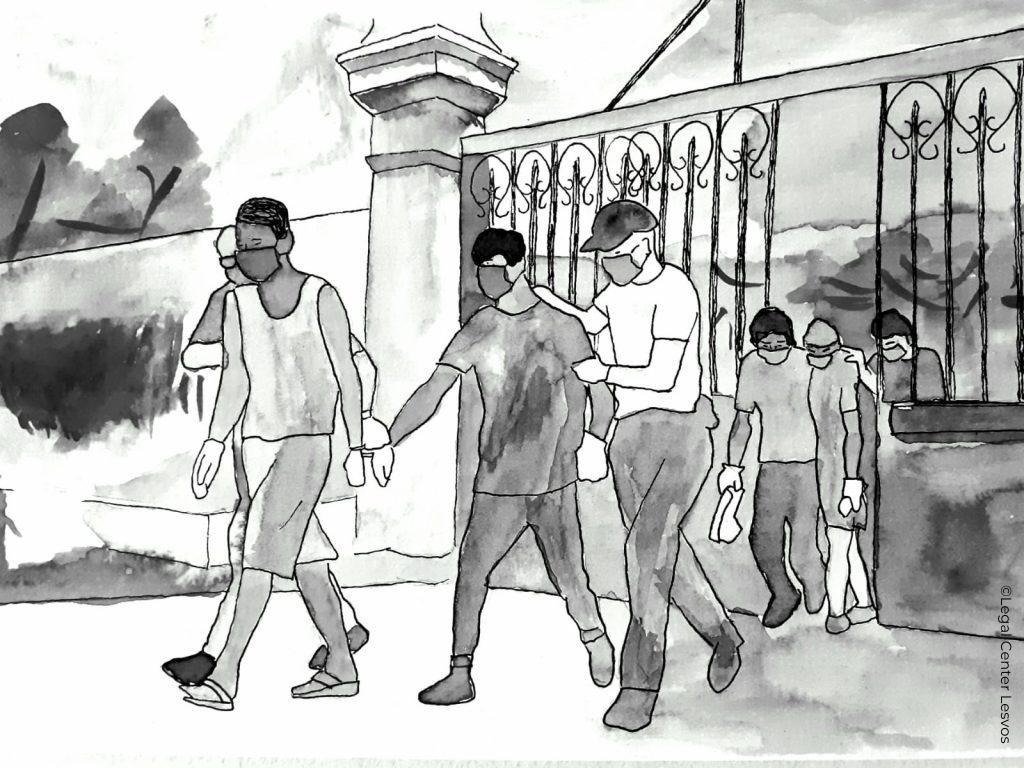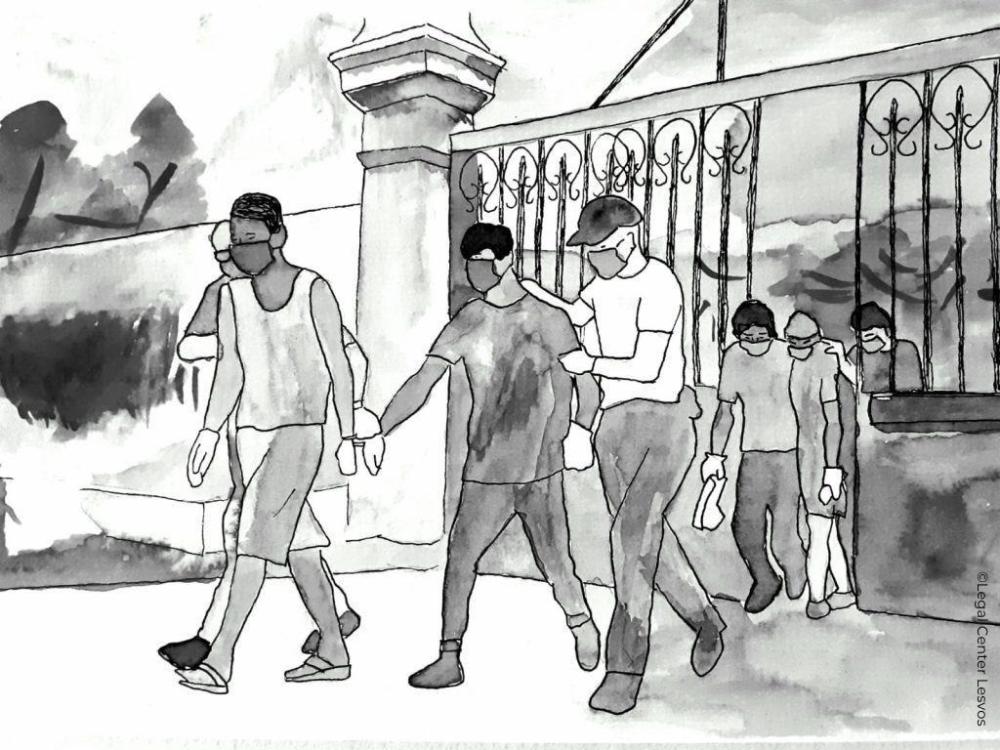Appeal Trial: #FreeTheMoria6
After the Moria fire in 2020, the judicial scandal continues - Demand for fair and transparent trial on 4 March 2024 in Lesbos.
Four teenagers from Afghanistan have been detained for 3.5 years despite clear evidence of their innocence. They are being made scapegoats of a failed EU migration policy.
On 4 March 2024, the appeal trial of four of the Moria 6, juveniles convicted for the fires that destroyed the infamous Moria camp on 8/9 September 2020, will take place at the Court of Appeal in Mytilene, Lesvos. Originally scheduled for Monday 6 March 2023, the appeal has been postponed for a year. Finally, the crucial new evidence can be presented showing that the testimony of the prosecution’s key witness is completely false.
This new evidence comes from the investigation conducted by Forensic Architecture (FA) and Forensis (commissioned by the lawyers representing the Moria 6), which maps the development of the fire on 8 September 2020. The appeal will also provide an opportunity to interrogate the testimony of the key witness.
Dimitra Andritsou, research coordinator of the FA/Forensis team, stated: “The analysis we conducted […] proves that the young asylum seekers accused of arson were arrested on the basis of weak and contradictory evidence, suggesting that […] the Greek government needed a scapegoat for a disaster that was pre-programmed.”
Only a few days after the fires in September 2020, the police had arrested six teenagers (the Moria 6) and accused them of arson. From the moment of their arrest, they were already presented to the public as guilty.
The Moria 6 were tried in two separate trials that were widely described as a “parody of justice.” Although documents proving their age were available, only two of the six arrested were recognized as minors. The four defendants who were identified as adults were sentenced in the first instance to 10 years in prison in June 2021, convicted of arson endangering human life, with the court refusing to consider any mitigating circumstances.“They did not listen to us at all,” said one lawyer as she left the courtroom, “this verdict was already determined when the defendants were arrested in mid-September 2020.” Immediately after the verdict was announced, the defense filed an appeal.
After the verdict on 11 June 2021, international trial observers criticized the lack of evidence and spoke of an unfair trial. The international trial observers concluded in their comprehensive report on the trial that the defendants’ right to a fair trial was repeatedly violated. Despite the lack of evidence of the four defendants’ involvement in the fires, they were found guilty after a two-day trial. Essential trial documents were not translated for the defendants, so that they were unable to understand the accusations leveled against them. For this reason alone, the trial is formally invalid.
The postponement of the Moria 6 appeal also meant that important new evidence showing that three of the four young men were minors when they were arrested can be examined only now.
It must be emphasized again that the court relied solely on the written testimony of a witness who allegedly could no longer be found. However, his testimony is full of contradictions, as the extensive analysis of the night of the fire now shows. In addition, he only mentioned first names, commonly shared among people living in the camp, on the basis of which the police arrested six teenagers. The “witness” was not present at any trial. It can only be assumed that the court was aware of the fictitious testimony of the only witness, and that they did not want to jeopardize the conviction of the youths in this political trial, despite the lack of evidence.
The fear of a preliminary conviction had already come true when the two Moria 6 youths who were officially recognized as minors, were sentenced to five years imprisonment by the Lesvos Juvenile Court in March 2021. On 7 June 2022, the sentence from the first instance was confirmed by the Juvenile Court of Appeal, although there was still no credible evidence. Τhe sentence was only reduced from five to four years due to “good behavior in prison.” The Legal Centre Lesvos filed an application to annul the unfair sentence. This was rejected by the Supreme Court.. The application will now go to the European Court of Justice. Meanwhile, A.A. was released on parole for good behaviour, and M.H. was taken directly from prison into detention for deportation.
The injustices committed since the arrest of the Moria 6 are unfortunately not isolated cases, but part of the systematic criminalization of asylum seekers in Greece.
The sentencing of the six youths is another shocking example of how people on the move are criminalized to distract from the crime of the EU and Greece of building and maintaining inhumane camps like Moria. Brutally, the reform of the “Common European Asylum System” (CEAS) provides for further camps modeled on Moria at the EU’s external borders.
- We stand in solidarity with the Moria 6 and against the deadly EU border regime!
- We call on the EU and the Greek state to take responsibility for the inhumane camps they created that result only human suffering!
For information on the legal context, see Legal Centre Lesvos
Email: freethemoria6@riseup.net
Twitter: #FreeTheMoria6
Blog: https://freethemoria6.noblogs.org/
Press contact
Alice Kleinschmidt, Welcome Office Lesvos: +30 698 872 4982
Nefeli Belavila - Trova, CPT - Aegean Migrant Solidarity: lesvos@cpt.org


